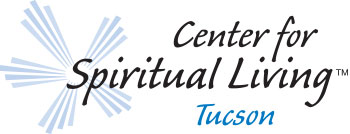Stewardship
As you are aware, we circulate 5% of our contributions back into the Tucson community in support of organizations that support self-determined living. You might wonder why we do this, even in months when we seem to have just enough, or not even quite enough, to cover our own expenses. As a Center, we believe and practice the Law of Circulation. This means that we put our money where our mouth is. In The Science of Mind (p. 498, pp. 1), Ernest Holmes wrote, “There must be an outlet as well as an inlet, if there is to be continual flow.”
Lynne Twist wrote extensively about the right use of resources in her book, The Soul of Money. One of her big ideas was the idea of sufficiency and what ‘enoughness’ really looks like. She wrote (p. 120), “In the context of sufficiency, appreciation becomes a powerful practice of creating new value in our deliberate attention to the value of what we already have.” By selecting local charities that support self-determined living from our present experience of sufficiency in the contributions we have received, we deliberately recognize the value of what we have to share, here and now.
During December we heard from the three charitable organizations that you had recommended during our congregational solicitation in November. On January 6, during Sunday Services, those present will vote for the charity we will support with a percentage of our Sunday offerings in 2019.
Sister Jose Women’s Center is dedicated to the care and nurturance of homeless women within our community. They provide respite and basic needs as well as assistance with housing, social services, health advocacy and pre-employment readiness. Women reach out to women with dignity, respect and compassion. For more information, visit: srjosewomensshelter.org
Old Pueblo Community Services offers a full continuum of services from Outreach to Supportive Housing. ‘Housing First’ places people, regardless of their history, in housing first. By removing the chaos of living on the streets or in shelters, vulnerable individuals engage in services and go on to live stable independent lives. This promotes individuals’ re-entry into the community as viable contributors. For more information, visit: helptucson.org
Youth On Their Own strives to eliminate barriers to education and empower Arizona’s homeless youth to stay in school. For over 30 years, we provide continuing support in support of high school graduation for persons in this unique demographic by providing financial assistance, basic human needs, and one-on-one guidance. With the help of our supporters nationwide, we have empowered over 16,000 homeless youth to remain in school and pursue opportunities for self-sufficiency. For more information, visit: yoto.org
Be sure to attend the Sunday services on January 6 to vote on the charity you prefer that we support in 2019.
-Dick Laird




